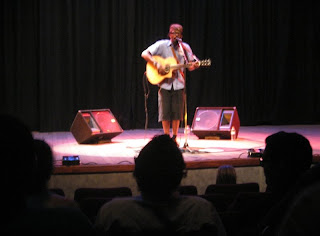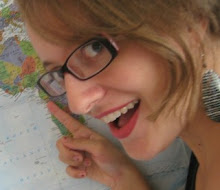I’m learning a new language. Not that I’ve mastered Lingala already, but I’ve decided to move on to Laari because it’s the language most of my friends speak and it’s the main language where I do my marketing, so I have more opportunities to hear and use it than I do Lingala right now.
Laari is more difficult. Lingala is a trade language so it’s simpler in some ways, kind of like the grammar of English is simpler than German. Laari has more of the typical features of Bantu languages. Here are some fun things I’ve learned so far.
There are 15 noun classes, which means that a lot of words in a sentence are different depending on the class of the noun one is talking about. Just to say something like “Is there ____?” requires different forms:
Dimpa ha die? Is there bread?
Nsusu ha ye? Is there chicken?
Mbiji ha ze? Is there fish?
Loso ha lue? Is there rice?
Mungwa ha we? Is there salt?
My Lingala sometimes helps me because there are some words that are the same:
Sala: to work
Tala: to watch
Mona: to see
Loso: rice
Mafuta: palm oil
Etc.
And sometimes the words are similar to what they are in Lingala and I don’t know if I’ll be able to keep the two languages separate!
Lingala: Mbisi Laari: Mbiji “fish”
Lingala: Telema Laari: Telama “to stand”
Lingala: Soso Laari: Nsusu “chicken”
Etc.
When learning a language it’s always interesting to pick up on some cultural items. For example in Laari there are two words for “to lick.” One is for licking like we would an ice-cream cone and the other is just when you stick your tongue on something once. I’m like “Why do you need a word for sticking your tongue on something?” Apparently they do that a lot for when they have some salt or sugar on their hand. Not really sure of how that works just yet, but it’s important enough to have its own verb!
When my language tutor had the opportunity to teach me whatever he wanted one day (as opposed to me planning the lesson), the important expressions he wanted me to know included the commands: “Bury your spit” (like cover it up after you spit on the ground), “Wipe your mouth” and “Stop making noise.” Not exactly the first expressions I would think of to teach a beginning English speaker!
Learning local languages is fun here because people freak out and are so encouraging. You can just say a simple greeting and they’re like, “You speak my language!” My friends don’t get tired of hearing me say the same simple phrases, “I’m fine and you?”, “Until tomorrow,” etc. People also get a kick out of learning that I have a Laari name, “Mikembi.” A boy at the orphanage exclaimed, “That’s an old person’s name, like a mama who works out in the field!”
There’s a French guy here who sings with a Congolese group and speaks fluent Lingala and Laari. I heard when taxis pick him up they won’t let him pay. People all over recognize him. He’s highly revered for his adaptation to the culture, like a legendary hero. Someday…
 Last week my teammate Dana sent out this invitation:
Last week my teammate Dana sent out this invitation: We’ll have a nice dinner chez nous on Wed 25 June around 6:45. All the yummy servings will have the shape and/or texture of our favorite parasite. Don’t be afraid! Just wiggle on over!
We’ll have a nice dinner chez nous on Wed 25 June around 6:45. All the yummy servings will have the shape and/or texture of our favorite parasite. Don’t be afraid! Just wiggle on over! Note the wiggly yarn garnishing the table. We ate spaghetti and green beans. Even Monkey joined in and brought her pills too.
Note the wiggly yarn garnishing the table. We ate spaghetti and green beans. Even Monkey joined in and brought her pills too.





